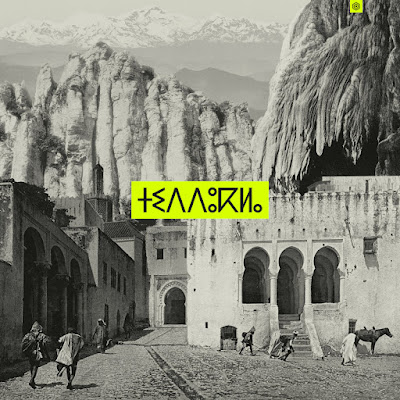The story behind Hassan Wargui's Tiddukla ("Friendship" in English) is well known, but that doesn't mean it's not worth retelling. The prolific Amazigh singer and banjo player recorded and released the album under his own name via YouTube in 2015 where it gained most of its traction before being picked up by Hive Mind and given a proper vinyl pressing and digital release last year.
Now Hassan is far from an obscure player in the world of international folk, but even then, I hadn't heard of him until I check out Tiddukla. He has a number of projects that he works with on a regular basis and he has even collaborated with New York-based producer Jace Clayton (DJ/Rupture), but all these connections didn't translate into access to sufficient resources to release Tiddukla outside of his native Morocco once it was finished. Without other options, YouTube ended up being the best method for broadcasting his sound to a global music audience.
Tiddukla is lush and calmly anodyne, extending crescent waves of golden tones towards you, like a balmy gust of sandy, desert wind. Hassan feels fully present in each verse and measure, and I feel like I can reach into the rustle quite distorted air that transports each note of these songs and recognize the warmth of his grip in a friendly handshack intercepting my cautious approach into the sonic space he has opened up.
It pains me to think that there was a very high probability that I might never have come across this album. After all, most of what I watch on YouTube are videos of people disassembling and discussing machinery and unlicensed, out-of-context clips Gravity Falls- in other words, I very easily could have missed it. It's interesting to me how platforms that most people in the US use frivolously as a time sink (myself included), may serve for others as the best option for breaking through the limitations of poverty and under-development. While as a for-profit company, YouTube is hardly a pillar of benevolence, they certainly are not going to stop an underdog from rising and gaining an audience (engagement is engagement, and engagement is green [or so they claim]!).
There would seem to be a lot of things working against Tiddukla, and Hassan's music in general: his humble origins in the Anti-Atlas Mountains where he built his first banjo from scratch, through to his struggle for recognition on the world stage, playing traditional music and singing in a Berber language that was not only suppressed for centuries, but whose name, most English speakers can't even begin to pronounce. And then there is also the issue of him not having any real way of distributing his music outside of his island. But if you're reading this, it means that none of that was enough to stop him from getting his music in front of someone who cares.
Tiddukla is a beautiful and irreplaceable gem, but also a testament to the fact that there isn't a wall too high, or an ocean two wide, that it can keep people separated and foil their drive to connect over their shared love of art and culture. It is also a reminder to myself to always be on the lookout for something fresh, and from my relative experience, unorthodox. Something that I haven't heard before but which would indubitably improve my life if I gave it a chance.

